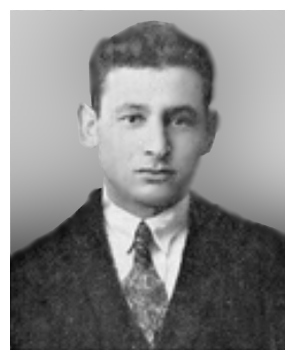 |
Hebrew text to be translated
|
 |
Hebrew text to be translated
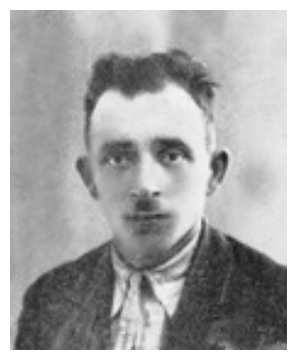 |
Hebrew text to be translated
Fishel joined the Paolei-Zion movement very early and faithfully served it to his last breathe. As the son of a very fervidly pious father, his liberal and revolutionary beliefs often led to sharp conflicts in his family. Being literally totally occupied in party work, he did not have the time to complete his education as a locksmith.
He always carried around great plans to create institutions of a social-communal character, such as an Interest-Free Loan Fund for the not well-to-do comrades, and a Lanit-haTzedek (inn for the poor) for nightly tours of duty with sick comrades, and the like.
Later, when he married and his family grew larger, naturally it was not easy for him. He never complained. “We will soon work our way up,” was his saying.
In 1939, when the dark, bitter gehenem (Translator's note: hell) had already begun, Fishel's entire family perished. He alone, sick and broken, survived the horrible years. At the beginning of 1946 Fishel was in a government sanatorium for lung diseases in Lower Silesia. He left the sanatorium at the end of 1947, took over the position of secretary with left Paolei-Zion in Legnica and tried to rebuild a family life. He exhaled his soul at the end of 1948, hoping that his health would become better.
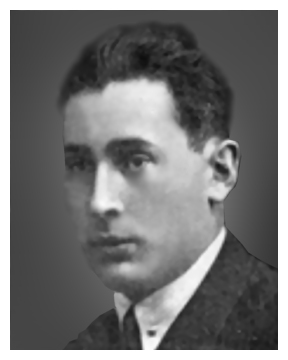 |
Hebrew text to be translated
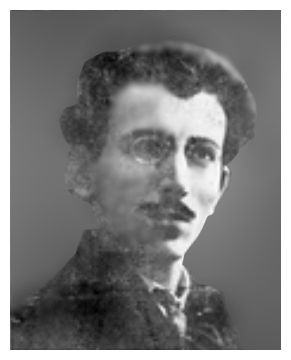 |
Simkhah Kalka was the dynamic driving force in the S.S. Party in Częstochowa.
As a member of Tiferes-Bokherim (Translator's note: splendid young men) in
Radomsk, he had already shown great organizational abilities. When he ended
his apprenticeship as a printer with Leibl Gelbart, he left Radomsk, moved to
Częstochowa and there worked at Baczan in the printing shop until 1913
when he departed for America.
He faithfully served the party and was devoted to it with life and soul. Something happened in 1906 that puzzled the S.S. Party. The case that occurred showed that a provocateur was present in the party. A secret meeting had taken place at a comrade's and suddenly a great host of Cossacks and guards arrived and all of the members were arrested. Then Comrade Simkhah took upon himself to find out who had provoked the meeting.
It did not take long and Comrade Simkhah delivered a report of his investigation. With facts, he showed who “serves” the “guards.” This was one who knew the secrets.
A death sentence for the provocateur was issued at a secret meeting and Comrade Simkhah took the sentence that the Party had issued and carried it out.
It was enjoyable to hear him speak because he spoke and explained with emotion. Nature had gifted him with talent and wisdom that he had inherited from his father, Reb Tuvya Kalka, who was a sage and distinguished Hasid in Radomsk.
In 1919, after the First World War, Comrade Simkhah prepared to come to Poland. However, fate wanted him to die in America during his prosperous years.
Hebrew text to be translated
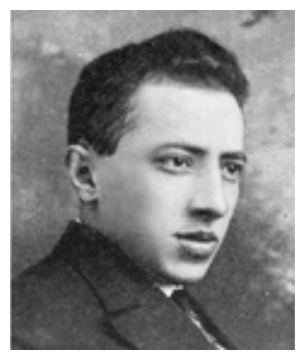 |
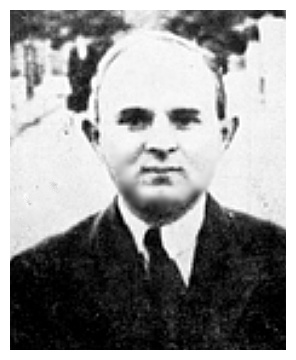 |
Hershel Krojze was the acknowledged worker-volunteer in Radomsk. He was the
clay-former and brick carrier for the Radomsker Jewish workers movement, which
he helped build with sweat and toil.
[Page 480]
His way up was difficult, strewn with stones. However, he went step by step until
he achieved his respected name, not only in his S.S. Party, but in all
workers' parties and with the masses.
He ended his kheder studies with Haim-Dovid Melamed in Shul Street at fourteen. His parents wanted him to continue as a Beis-Midrash bokher (young man). Therefore, his father gave him into the hands of two then Beis-Midrash bokherim, Leibl Zilberberg and Yehiel-Shlomoh Szitenberg. He studied in the Beis-Midrash for two years; at the same time he studied Russian and Polish with the Lelewer teacher and read the Hebrew newspaper of that time, Hatzfire, in secret. After two years of study in the Beis-Midrash, it became tedious and he began to look for a [purpose in life]. He began to learn a trade at 16 and it did not last long and he became the leader of the Radomsker Territorialist Workers' Party, S.S.
Although he was an outspoken opponent of Eretz-Yisroel, he supported emigration there. He was the founder of a consumer cooperative and, during the First World War, a representative in the Joint [Distribution] Committee and the Jewish Loan and Savings Office, achieving the trust of everyone.
When Poland became independent and voting took place – in 1918 – he was elected as a Councilman and courageously defended the Jewish workers' interests. He always won over the anti-Semitic councilmen with his talent for speaking and they withdrew their proposals that were aimed at hitting the Jewish artisans and retailers.
Before the outbreak of the Second World War, when anti-Semitism in Poland strengthened, he was urged to leave Radomsk and go to Eretz-Yisroel. He responded that when a fire is burning, one must not run away, but attempt a rescue. He died in 1941 in the Radomsko Ghetto.
Mordekhai-Zelik surpassed those students older than he with his insight when he was still a Beis-Midrash bokher. His father Hershel Melamed (Hershel the short one) always took him with him on yom-tovim to the Aleksander Rebbe. However, Mordekhai-Zelik did not grow up to be a Hasid. After studying in the Beis-Midrash, he secretly read the literature of the Haskalah.
He was one of the founders of the society, Tiferes Bokherim and its chief speaker and he could really speak. His language was ebullient and said with conviction that brought along the listener. Mordekhai-Zelik was one of the original founders of the Poalei-Zion movement in Radomsk.
In 1909, he was already a delegate of the Radomsker Jewish Workers to the Second Poalei-Zion Conference in Krakow, in which Ber Borokow took part.
Before the First World War, Mordekhai-Zelik received permission from the Russian regime to open a library and reading room in Radomsk. He did not open a reading room at that time, but the young did have Jewish books. He joined with the large publishing houses in Poland and America and the Radomsker young were given the ability to read the newest published of original and translated Yiddish books.
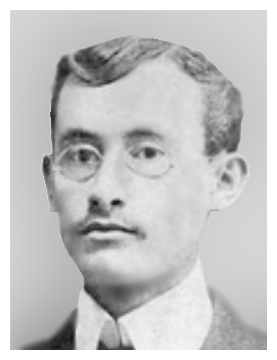
Mordekhai-Zelik Rozenblat |
1915/16 arrives. The First World War rages. However, Mordekhai-Zelik does not rest. He calls together the older worker-activists (of 1905/6) and creates the first cultural circle and later the Youth Organization with the permission of the Russian regime. Kutlura already had its legalization from the Austrian regime. M. Z. Rozenblat was one of the most active workers at that time in organizing the Jewish youth, and their guide.
In the later years, when the workers' parties were organized, the oldest Poalei-Zion activist was again very active in the revival of the organization in Radomsk. He remains faithful to his Zionist-Socialist world view and cannot make peace with the more leftward turn of the Poalei-Zion Party in Poland. He then lives through a communal tragedy, seeing how his students take over the management and he – the veteran who was devoted to his world view – must move to a side. He did not bend then and life shows its justice; he stands again in front of the ranks of the Zionist-Socialist movement in Radomsk.
Years pass. Mordekhai-Zelik becomes a father of two children. Radomsk needs a school for Jewish children that will encompass both the kheder and the beginning of national studies, Hebrew and the like. As a Hebraist and pedagogue, he opens such a school and dozens of Jewish children came to him for the first education in the modern nationalist spirit.
Mordekhai-Zelik Rozenblat takes part in communal work in all areas. Between the First and Second World Wars, the greater flow of support from the Radomskers in America begins and this is divided according to the old system of philanthropy. Then he is aroused and writes an open letter to the landsleit in America: “Do not make us beggars; help the Radomsker Jews with constructive help!”
His youth was difficult, born and raised by very poor parents. His independent
life, too, was not much better.
[Page 481]
However, he never surrendered, either politically or socially.
When the devoted children of the Jewish people also want to save Yiddish and Hebrew books at the beginning of the Second World War from the Hitlerist assassins, they find in M. Z. Rozenblat their devoted helper. He takes in a large part of the Sholem Alechiem Library, takes an active part in the creation of the underground movement and, at the end, endures the fate of the whole of Radomsker Jewry.
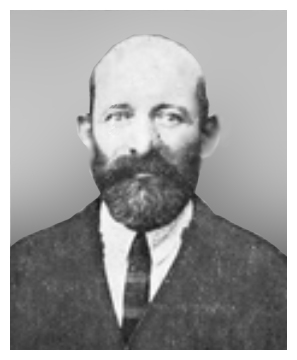 |
According to his appearance, Mordekhai-Ahron Rajcher was a deeply Jewish artisan; he had a grayish-blondish beard, wore a “Jewish hat” on his head and a short jacket. Those who knew him, however, knew that this quiet tailor was ready to sacrifice himself for the Jewish Workers Movement.
Although he was an active member of the Bund, it did not prevent him from maintaining the warmest friendly relations with member of other groupings. The inter-party conferences mainly took place in his apartment. In 1930 he joined Poalei-Zion (Ts.S.) and was sent by the party as councilman in the Kehile.
In the era of annihilation, Mordekhai-Arhon went around shut inside himself and surveyed with his blank eyes the horrible realities in the Radomsker Ghetto. All of the Jewish grief and pain looked out of these eyes.
Wolf Szpira, born and raised in a well-to-do and pious family, was carried away by the national social flare-up in the years of the First World War. He left his father's iron business and left for Eretz-Yisroel in 1922, made a pioneer life here and helped in the building of the land. In the later difficult years of crisis he came to Radomsk with the idea of again returning.
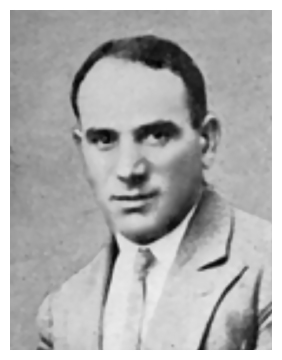
Wolf Szpira |
Alas, he was not successful. He had to take over his old father's iron business and thus his hopes were dashed until the outbreak of the dark Second World War.
In 1942 he directed the Ghetto kitchen in the meeting hall of the Jewish Kehile for the unfortunate Jewish population (together with member Abraham Kamelgarn the former secretary of the Kehile). They both were later exterminated together with the other Jewish martyrs.
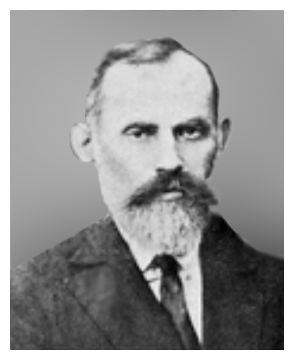 |
Two types, publicly distinct but similar, were distributed among others in our locale. One of them with a blond beard always wore a “Jewish hat” on his head – this was Alebarda. Everyone knew about him, that he had carried the red flag in 1905. The second, Zakin Szreiber with pointed long whiskers, turned up in the style of the Poles, and with a bicyclist's hat on his head, was also known as a worker-activist from the stormy year of 1905.
Zakin Szreiber sewed children's clothing, like all tailors. However, he was
never seen at Minkhah-Maariv services in Zylberszac's shtibl,
and where he davened on Shabbos, no one exactly knew…
[Page 482]
With the tailor of children's suits was found an even richer library with works
about the workers' movement and of Yiddish and European classics. Sitting at
the sewing machine, Zakin Szreiber hummed revolutionary songs and whispered
the most beautiful pearls of Yiddish and general poetry. Zakin Szreiber showed
a special love for the poet H. Leiwik whom he knew personally and with whom
he corresponded.
Zakin Szreiber actively participated in communal life in the era between the two world wars. After the unification of Poalei-Zion with Ts.S., he was elected to represent the party in the Jewish Kehile. He belonged to the active members of the Kehile and his suggestions received great respect from his political opponents, too. He was also active in the retailers' union and in other communal and social institutions, where he devotedly served the interests of the Jewish working man.
Zakin Szreiber earned his livelihood from tailoring his entire life: he sat alone at the work table and sewed beautiful modern clothing for Jewish children.
Zakin Szreiber was lonely in his ghetto-lair during the German occupation. He and his wife were bent and broken. With tears in his eyes he would tell how much pain and suffering the Germans, and even more the folks-Deutsch, had caused him. During a meeting in the Ghetto between Zakin Szreiber and Dovid Koniecpoler (Autumn 1941), he took out a nicely packed envelope and with a raised voice said; “The human animals did not permit me to bring my things from my apartment to the Ghetto and murderously beat me. This letter, from our great Yiddish poet H. Leiwik, written to me, I did bring under a hail of blows. Perhaps one of us will live through these bitter ruthless times. My great friend H. Leiwik should know how strongly I valued him.”
After the great destruction, D. Koniecpoler fulfilled the request of Zakin Szreiber and gave the letter to H. Leiwik.
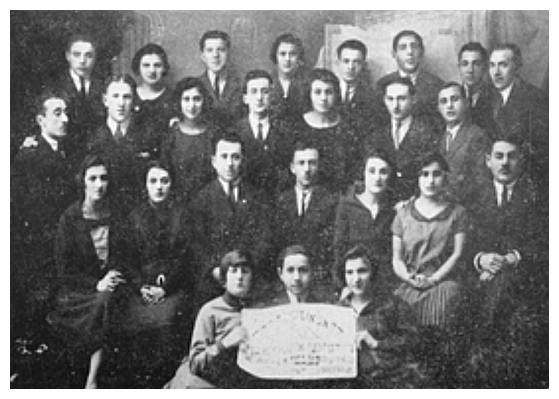
First row, top (from the right): Fincze Koniecpoler, Moishe Dudkewicz, Leibish Wloszczowski, Mordekhai Moszkowicz, Wajnstok, Naftali Flatek, Ite Zylbersztajn, …..
Second row:
Sitting:
Holding the poster:
|
|
JewishGen, Inc. makes no representations regarding the accuracy of
the translation. The reader may wish to refer to the original material
for verification.
JewishGen is not responsible for inaccuracies or omissions in the original work and cannot rewrite or edit the text to correct inaccuracies and/or omissions.
Our mission is to produce a translation of the original work and we cannot verify the accuracy of statements or alter facts cited.
 Radomsko, Poland
Radomsko, Poland
 Yizkor Book Project
Yizkor Book Project
 JewishGen Home Page
JewishGen Home Page
Copyright © 1999-2026 by JewishGen, Inc.
Updated 28 Aug 2021 by OR